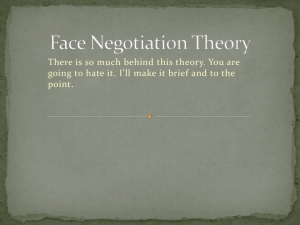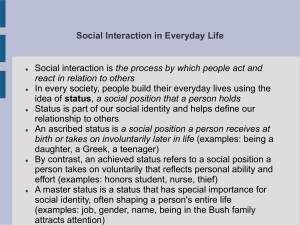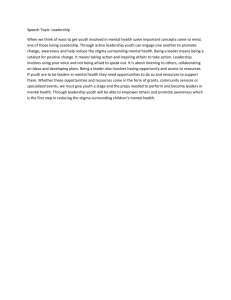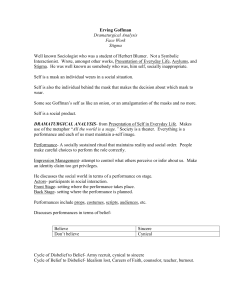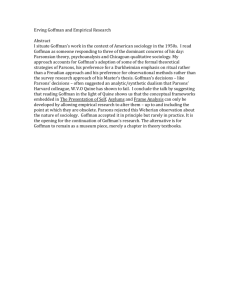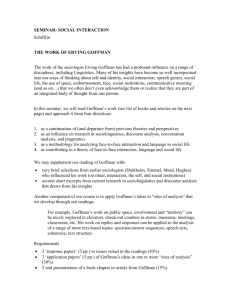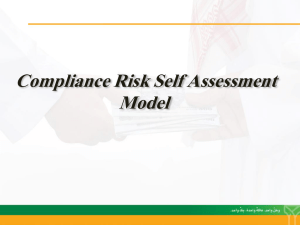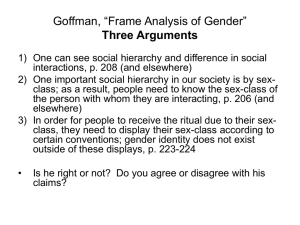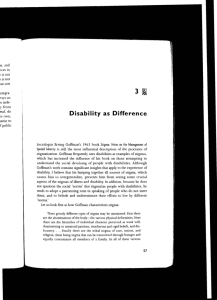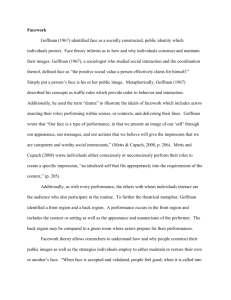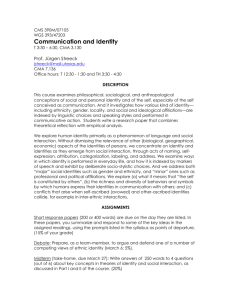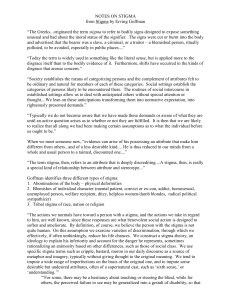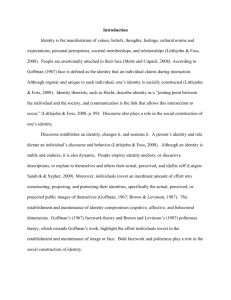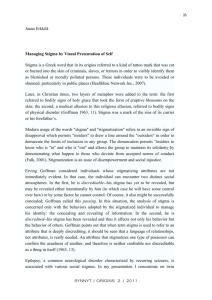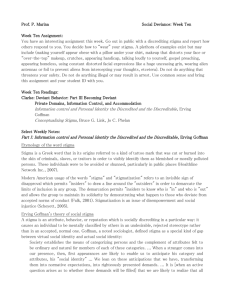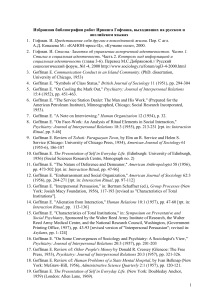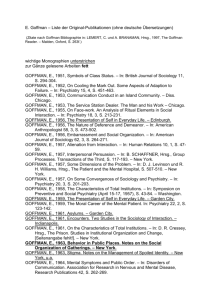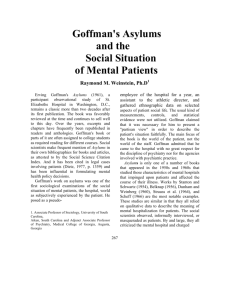Interpersonal Communication
advertisement
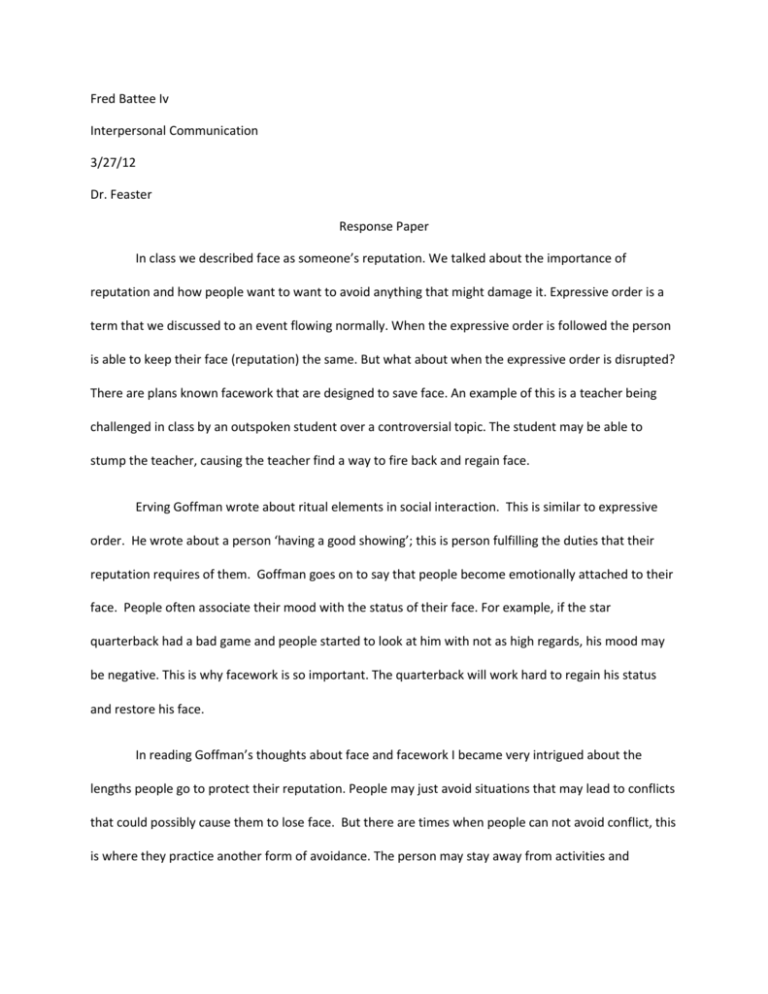
Fred Battee Iv Interpersonal Communication 3/27/12 Dr. Feaster Response Paper In class we described face as someone’s reputation. We talked about the importance of reputation and how people want to want to avoid anything that might damage it. Expressive order is a term that we discussed to an event flowing normally. When the expressive order is followed the person is able to keep their face (reputation) the same. But what about when the expressive order is disrupted? There are plans known facework that are designed to save face. An example of this is a teacher being challenged in class by an outspoken student over a controversial topic. The student may be able to stump the teacher, causing the teacher find a way to fire back and regain face. Erving Goffman wrote about ritual elements in social interaction. This is similar to expressive order. He wrote about a person ‘having a good showing’; this is person fulfilling the duties that their reputation requires of them. Goffman goes on to say that people become emotionally attached to their face. People often associate their mood with the status of their face. For example, if the star quarterback had a bad game and people started to look at him with not as high regards, his mood may be negative. This is why facework is so important. The quarterback will work hard to regain his status and restore his face. In reading Goffman’s thoughts about face and facework I became very intrigued about the lengths people go to protect their reputation. People may just avoid situations that may lead to conflicts that could possibly cause them to lose face. But there are times when people can not avoid conflict, this is where they practice another form of avoidance. The person may stay away from activities and subjects that could cause them to lose face. In this situation the person will usually try to be courteous and polite in order to keep peace and avoid conflict. In another writing Goffman discussed stigma. This is how other people may view another person. He talked about when a person is discredited, this is when there is a discrepancy between a person’s actions and their face or stigma. Face and stigma do overlap at times. People want to live up to their reputations. For some people that is more important than others but for everyone it is important. People will do many things not to have themselves discredited. People often struggle with what part of themselves they want to expose. This could after their face and change their stigma.
